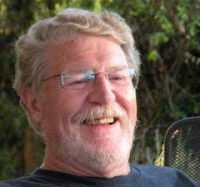“As long as we keep taking what they are dishing out,” United Steelworkers of America President Leo Gerard told a meeting on national health care, “they’ll keep dishing it out !” The men and women in Washington’s streets April 20 are saying we won’t take the military solutions, Enron/LTV robberies, global exploitation, destruction of the Bill of Rights, civil rights and women’s rights. We’re gonna start dishing it back.
Although every issue could stand on its own ground and deserves immediate action, all the organizations and groups of friends agree on the target: the U.S. government and its war/corporate policies. In that sense, the Bush administration and all the Bushettes in Congress, state and local governments and school boards, serve an important starting point toward building the unity in the U.S. to remove the tanks, restore democratic rights, provide food, clothing, shelter, health care and education and establish real equality.
It is a beginning, a follow-up to Seattle, a renewal of the best in our country, shaken and confused and frightened by the heinous terrorist attack on our country Sept. 11.
What the Bush administration represents, and acts on, are the interests of financial and corporate institutions. These interests that they advance and protect are not some same ole, same ole of “the powerful” or “the powers that be.”
The Bush administration is different because the “system,” capitalism, is different. Globalization is not in the same place. The state of U.S. democracy is not in the same place. Again in the words of Gerard, it is “Rambo capitalism.” They play by no rules, as the 2000 elections clearly show. They respect no law, as the trashing of the ABM treaty and the contempt for the U.N. and World Court indicate. The Bushites are raw and brutal and they are real.
But, the people march and use the effective tools at hand – the political route to justice – into the streets of Washington. Success, life and death, hinge on the ability of all the organizations and groups to unite, to convince, to organize, to reach out, to find, recognize and respect allies, and boldly act. The depth of blunting and reversing the Bush/corporate reactionary, deadly drive is in direct relation to our ability to build genuine unity.
No avenues are off the map. Elections are another tool where political power can be shifted, corporate power blunted. A central labor council president in the midwest puts it this way, “while there is only an inch worth of difference between the Republicans and the Democrats, it is that inch that the people live on.”
Elections are complicated, the election process is messy, but cynicism, disgust, disengagement are not an alternative. You don’t toss out a frying pan just because it is full of grease.
Elections, like the 2002 congressional and state elections, are not ignored by Bush, corporations or anyone else in their tiny venal country club. So, paying attention and doing the civic duty are important – especially when the country is at war.
Consider, what if there were thousands of peace, global economic justice candidates seeking elected office across the country at all levels of government. Getting elected, winning, requires unity, coalitions in the very first place. The opposition is strong, has all the lawyers, guns and money. But realizing the vision of justice and propersity for all means taking the fight, telling the truth into this arena.
Unity lives, breathes, grows or ebbs, debates, questions and is never still. Building unity is solving problems, thinking in different ways, trying new ideas and respect. Unity is issue-driven, not profit-driven. Unity is thinking and acting to win, achieve peace and justice It is complicated and it is possible. We have yet to write the finest history of our country or experience its best moments.
Denise Winebrenner Edwards is a city councilwoman from Wilkensburg, Penn. She can be reached at dwinebr696@aol.com









Comments